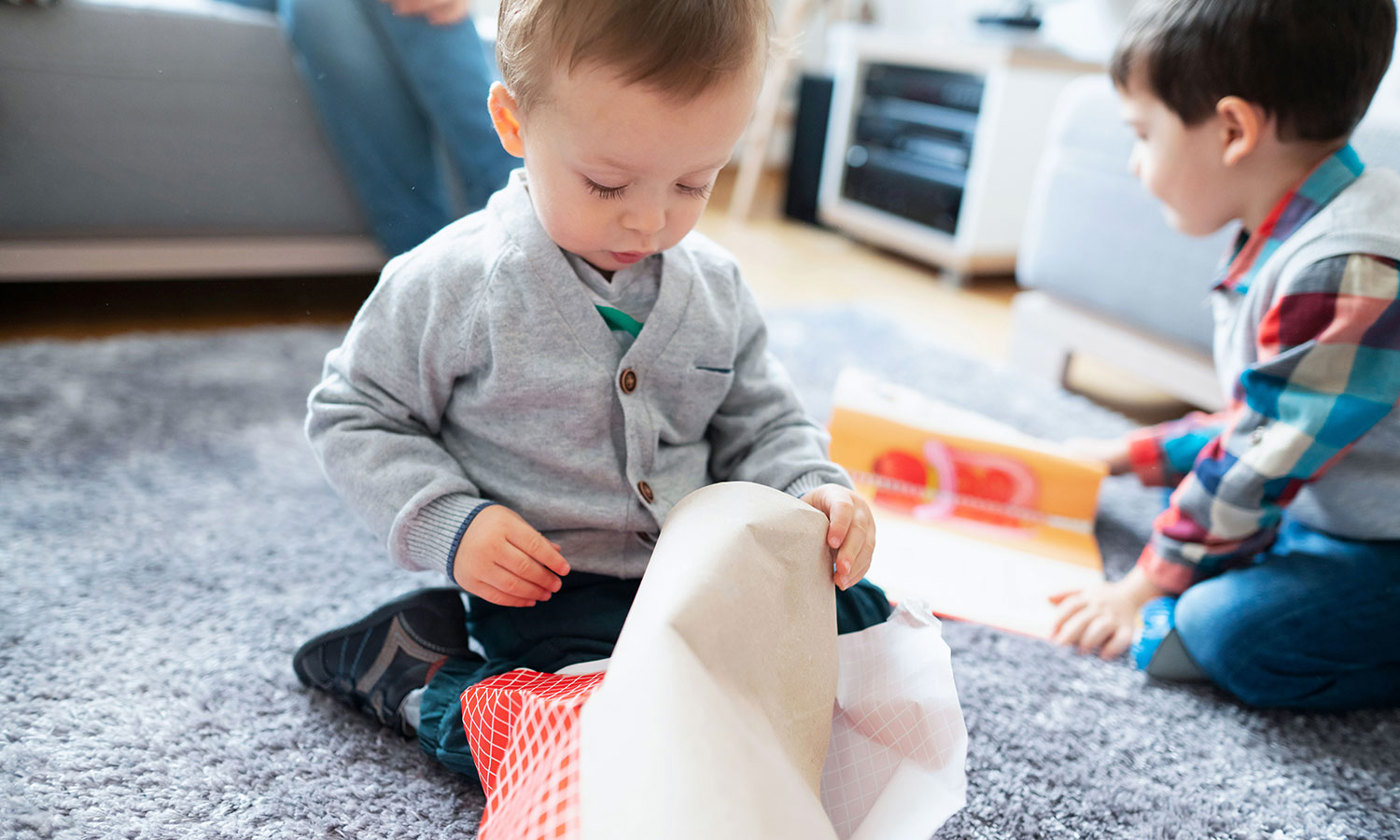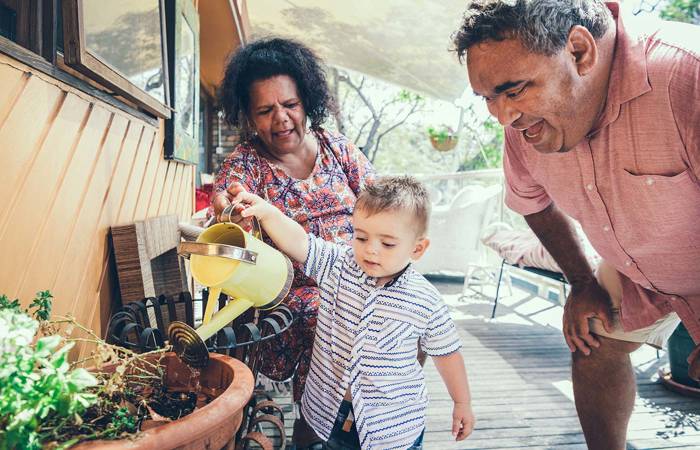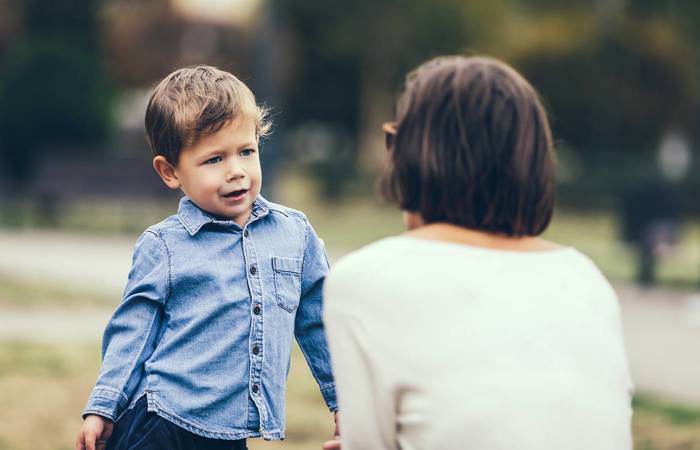Like what you see?
Sign up to receive more free parenting advice.
Thank you for subscribing to our newsletter!
Child Development

Credit: iStock.com/SrdjanPav
Your five-year-old has picked up a present. In the excitement they rip open the wrapping paper and stare at it.
“This isn’t what I wanted!” they scream while tears stream down their face.
Before you feel the glares from friends and family over your child’s reaction, or start to label your child as spoilt or ungrateful, remember gratitude is a complex emotion most adults struggle with, much less young children.
"Gratitude is a feeling not a behaviour,” emphasises Dr Becky Kennedy, clinical psychologist behind the popular parenting Instagram page Dr Becky At Home.
Dr Kennedy says that while parents want their children to act with more gratitude, at the core they genuinely want them to feel more gratitude and the more they feel gratitude, the more they will act with gratitude.
“We want our children to feel that feeling of gratitude. When our children are older, they aren’t going to say thank you because we pressure them, they are going to act with gratitude only if they feel that way,” she says.
So, how do we get our children to feel gratitude?
“Gratitude is a complex emotion, it involves a sense of thankfulness and appreciation of what you have which also necessitates perspective – you need to have a sense of perspective of what you have to really feel gratitude,” says Dr Kennedy.
A 2013 study found that children with a better understanding of emotions and other people’s perspectives at age three or four, were more likely to understand gratitude at age five.
Dr Kennedy explains that educating young children about other people’s perspectives starts with validating a child’s emotions.
“Even if you don’t agree or understand your child’s emotions, seeing them as real and valid sets the foundations for a complicated feeling like gratitude,” she explains.
“For example, saying, ‘Yes, we know you are really upset that we said no ice cream for breakfast’, even if, as a parent, you think ice cream for breakfast is illogical.
“In this situation, you are doing something quite complicated. While validating your child’s feelings, you are also saying that, even though you are not having the same reaction to the situation, you know and understand that their reaction is real and valid.
“You are teaching your child that different people feel different things, there can be two perspectives: I’m not upset that there is no ice cream for breakfast, but you are, both can be true.”
To be really grateful for receiving a gift you don’t want, you need perspective that while you are disappointed at not getting what you wanted, you know that the person who bought you the gift thought about you enough to a get a gift they thought you would want and that is something to be thankful for.Dr Becky Kennedy
Stay up to date with the latest news and articles from First Five Years
Thank you for subscribing to our newsletter!
Teaching gratitude
In a 2016 study, researchers uncovered why grateful parents raise grateful children.
Grateful parents were more likely to set goals to encourage gratitude in their six-to-nine-year-old children.
They were also more likely to expose their children to gratitude rituals, such as family practices or community events.
These exposures resulted in their children being more grateful.
Dr Kennedy explains that there are three strategies parents can employ to teach their children about gratitude from a young age.
“Firstly, gratitude is connected to noticing,” she says.
Dr Kennedy explains how, as families, we need to slow down and check in to the warm, happy feeling we have about certain things in our life.
“For example, ‘I’m so grateful I’m sitting down with my family to eat dinner’, we will only notice that if we slow down, stop, and recognise the feeling rather than just start eating,” she says.
“You need to start modelling that practice, pick one thing to slow down and notice, you don’t have to make your kids do the same, they will eventually follow.”
You also don’t have to lecture your children about what you are doing, it’s purely you modelling gratitude.
“Secondly, start noticing, out loud, the things you didn’t notice and doing it without guilt or shame,” she explains.
“Part of being grateful is noticing the times we take things for granted without the layer of shame. For example, talking about being grateful for having a warm coat on a cold day and saying you never thought about how nice that is.”
“Finally, start spending your time having experiences where you express gratitude to people and help out people, not just talking about things, but doing them,” explains Dr Kennedy.
She says that there is nothing that tells our children more about what we value than what we spend our time on.
It could be as simple as writing notes of thanks (or drawings for younger children) to people who have made a difference in their lives.
Understanding displays of ungratefulness
“Gratitude is a complex emotion, it’s almost always a later developing emotion than we expect,” warns Dr Kennedy.
When a young child shows ungratefulness, it doesn’t necessarily mean they are being ungrateful, but rather that they are dealing with a range of complex emotions that they don’t quite understand.
“To be really grateful for receiving a gift you don’t want, you need perspective that while you are disappointed at not getting what you wanted, you know that the person who bought you the gift thought about you enough to a get a gift they thought you would want and that is something to be thankful for,” she says.
That is a really complex thought process.
“We also can’t have space to feel gratitude if we don’t recognise the natural feelings we have when we don’t get what we hoped for,” says Dr Kennedy.
“The idea that you should feel nothing but gratitude when you get a gift, even if it isn’t what you want, it doesn’t allow us to help our children learn the process of gratitude which starts with regulating your natural emotions of, for example disappointment, to then be able to be grateful.”
Dr Kennedy encourages parents to prepare their children for a range of emotions involved in gift receiving, from feeling hopeful and excited, to feeling disappointed that we didn’t get what we hoped for, to feeling grateful someone thought of us.
“Gratitude isn’t the absence of frustration or disappointment, it’s the regulation of frustration and disappointment that allows for perspective taking and appreciation,” she says.
So, what happens when, despite all the preparation, your child still gets angry for not getting the gift they want?
Dr Kennedy explains that as their parent, you need to step in and model regulating their emotions.
This can be explaining to the gift giver that your child is feeling a range of emotions at the moment, from disappointment on not getting the gift they hoped for, to being grateful that they thought of them and it’s all too many emotions to process at once.
Then taking your child to the side and explaining to them that it’s okay to feel disappointed in the gift, but also grateful that someone thought of them.






